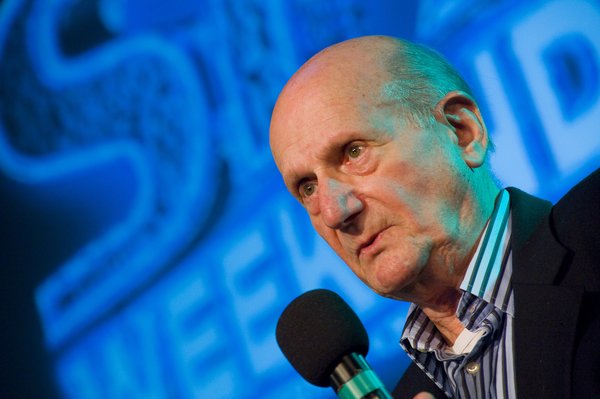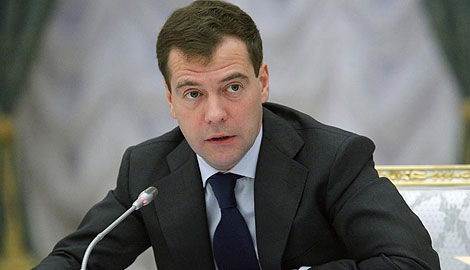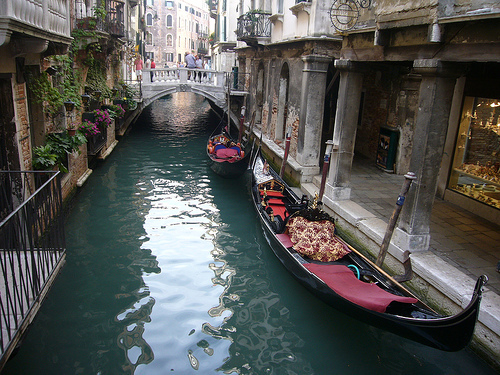Il Governo e il Parlamento hanno deciso di fare un regalo di Natale (o di fine legislatura) ai giovani che si trovano in una situazione di precariato: la legge di stabilità dispone che fino al 40% dei nuovi assunti nella pubblica amministrazione nei prossimi anni potranno essere riservati a precari. Il CNR ha fatto ancora di più: ha deciso di…
Archivi
Addio a Gerry Anderson, pioniere della fantascienza
È morto all'età di 83 anni Gerry Anderson, uno dei pionieri della fantascienza britannica. Anderson, insieme alla fortunata serie di “Dr Who”, iniziò dalle “supermarionation” con le quali produsse celebri serie come “Thunderbirds”. Anderson accumulò un eccezionale know how sugli effetti speciali e i modellini che trapiantò successivamente nelle serie con attori veri. La prima fu “Ufo”, girata nel 1969…
Il crack affligge il Brasile
Un'epidemia di crack sta affliggendo il Brasile: dalle grandi metropoli di San Paolo e Rio de Janeiro alle cittadine della foresta amazzonica, il Paese sembra essersi trasformato nella New York e nella Washington degli anni '80 quando frotte di persone si aggiravano per le strade inalando il fumo dopo aver surriscaldato i famosi cristalli di crack nelle apposite pipette. Una…
La passione spaziale di Medvedev
Mosca ci riprova e torna alla conquista dello spazio: spenderà 2.100 miliardi di rubli (circa 70 miliardi di dollari) per lo sviluppo del settore spaziale nazionale nel periodo 2013-2020. Lo ha detto il primo ministro Dmitry Medvedev. "Il volume totale del finanziamento è abbastanza significativo: 2.100 miliardi di rubli, comprese le fonti extra-budget", ha detto. Il tutto affinché il Paese…
Benvenuti negli Emirati, al concorso di bellezza per cammelli e dromedari
Chi lo dice che i concorsi di bellezza in campo animale debbano riguardare solo cani, gatti o cavalli? Di certo non la pensano così negli Emirati Arabi Uniti dove, al contrario, il re di queste celebrazioni è il dromedario. Accade nella città di Zayed, capitale dello sport, a ovest di Abu Dhabi, dove ogni anni si tiene l'Al Dhafra festival…
Venezia ammette: siamo la città più cara
Le città italiane più care per i turisti fra Natale e Capodanno? Venezia supera tutte con 130 euro in media per una camera doppia a notte (in calo però del -7,1% rispetto a novembre). Seguono Milano (120 euro, -8,3%), Roma (109 euro, -4,4%), Firenze (105 euro e una flessione più contenuta, -2,8%) e Verona (100 euro, -10%). A Bologna invece…
Tutti a Cali per il Festival mondiale della salsa
Si dice che a Cali i piedi non servano a camminare, ma solo a ballare. La città colombiana è infatti considerata la capitale mondiale della salsa. Ogni anno oltre 5.000 ballerini provenienti da scuole di ballo di tutto il mondo si danno battaglia a colpi di tacchi e paillettes nel Festival Mondiale della Salsa. La "Feria De Cali" arrivata alla…
L'estate da record in Brasile (e l'aeroporto va in tilt)
La città di Rio de Janeiro, in Brasile, ha fatto segnare ieri un caldo record di 43,2 gradi, la temperatura più alta registrata dal 1915, quando iniziò la misurazione da parte dell'Istituto nazionale di meteorologia. Secondo l'organismo, il calore più intenso è stato percepito nella zona ovest della città, dove la sensazione termica ha raggiunto i 47 gradi. L'altissima temperatura…
Signori, non scherziamo:
Monti non è De Gasperi
Monti come De Gasperi? Soltanto una generosa iperbole giornalistica può addurre una simile improponibile analogia. L’unico punto in comune fra due personalità tanto diverse – per formazione culturale, capacità aggregativa, statura internazionale – è la medesima origine settentrionale. L’essere un cattolico praticante, ad esempio, non autorizza a presentare Monti come l’incarnazione di una nuova esperienza di cattolicesimo politico, italiano od…
Ora Putin va al lavoro in elicottero
Su Mosca finora non poteva volare nessuno, ma presto un eliporto apparirà al Cremlino e anche alla Casa Bianca - le sedi rispettivamente della presidenza e del governo russi - e verranno creati corridoi di trasporto aereo per alti funzionari sulla capitale. La città è sempre più intasata da un traffico senza pari e gli automobilisti diventano ogni giorno meno…
















